The average cost of Craniotomy in Spain starts from ESP 28520 (USD 31000)
Treatment cost
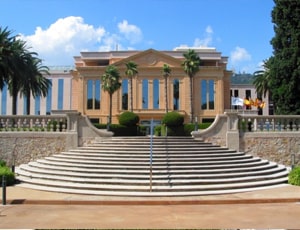
Apart from in-detail treatment procedures available, Centro Medico Teknon located in Barcelona, Spain has a wide variety of facilities available for International Patients. Some of the facilities which are provided by them are Accommodation, Airport Transfer, Choice of Meals, Interpreter, SIM, TV inside room. Also listed below are some of the most prominent infrastructural details:
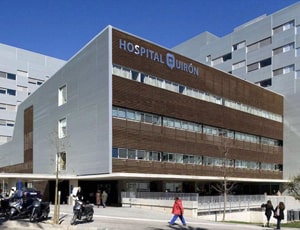
Apart from in-detail treatment procedures available, Hospital Quirnsalud Barcelona located in Barcelona, Spain has a wide variety of facilities available for International Patients. Some of the facilities which are provided by them are Accommodation, Airport Transfer, Choice of Meals, Interpreter, SIM, TV inside room. Also listed below are some of the most prominent infrastructural details:
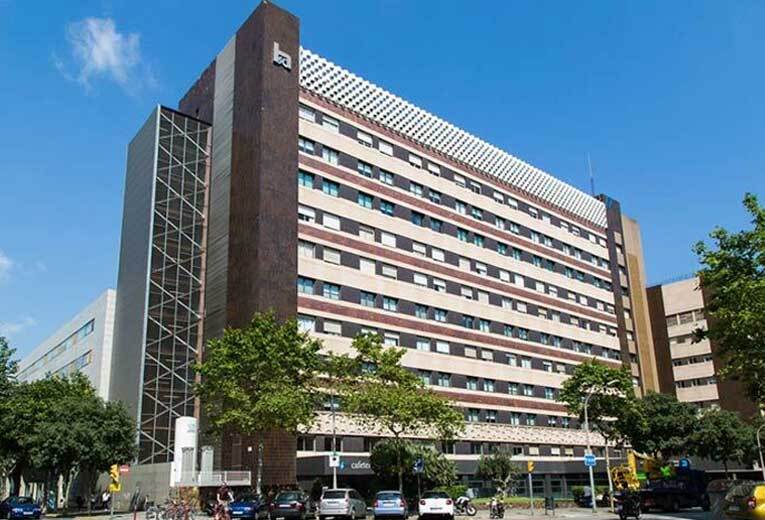
The Hospital is an amalgamation of a group of buildings located in the Eixample Left of Barcelona, ??between Paris, Viladomat, and London streets. It has a capacity of 350 adjustable beds and first-class hotel-like services inpatient rooms. Currently, it has a workforce of about 1100 Healthcare Professionals.
In order to treat patients with intensive care, the Hospital has 10 beds in its ICU for critically ill patients.
The Hospital has launched a few more things to improve customers’ services- 4 new Operating Rooms and a New Diagnostic Imaging Service.
Other Services
Types of Room
Double Rooms, Double Rooms for Individual Use, and Single Rooms; equipped with an easy-to-use electrical movement control system and a nursing call/warning system, located at the head of the bed, a sofa-bed for the companion, and a bathroom with a shower. They are also equipped with television and telephone.
A cafeteria/Restaurant is also available for the patients or visitors.

With about 80,000 m 2 , it is equipped with the highest sanitary technology and offers a wide portfolio of services-
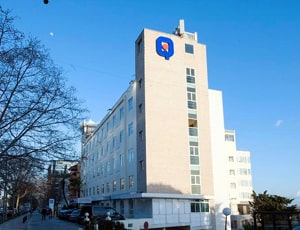
Apart from in-detail treatment procedures available, Quironsalud Marbella Hospital located in Marbella, Spain has a wide variety of facilities available for International Patients. Some of the facilities which are provided by them are Accommodation, Airport Transfer, Choice of Meals, Interpreter, SIM, TV inside room. Also listed below are some of the most prominent infrastructural details:
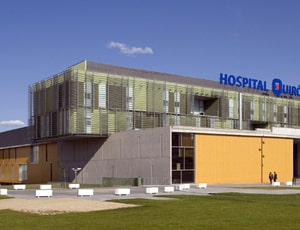
Apart from in-detail treatment procedures available, University Hospital Quironsalud Madrid located in Madrid, Spain has a wide variety of facilities available for International Patients. Some of the facilities which are provided by them are Accommodation, Airport Transfer, Choice of Meals, Interpreter, SIM, TV inside room. Also listed below are some of the most prominent infrastructural details:
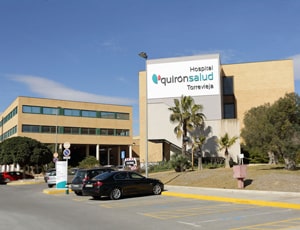
Quironsalud Torrevieja Hospital located in Torrevieja (Alicante), Spain is accredited by ISO. Also listed below are some of the most prominent infrastructural details:
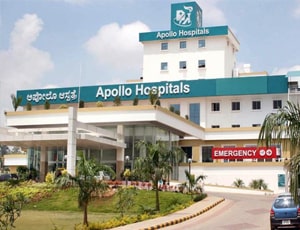
Types of Craniotomy in Apollo Hospitals Bannerghatta and its associated cost
| Treatment Option | Approximate Cost Range (USD) | Approximate Cost Range (INR) |
|---|---|---|
| Overall Craniotomy Surgery | 5543 - 11464 | 454073 - 927892 |
| Extended Bifrontal Craniotomy | 3420 - 9131 | 272128 - 726759 |
| Supra-Orbital Craniotomy | 3946 - 8570 | 327598 - 687723 |
| Retro Sigmoid Craniotomy | 5150 - 9943 | 421737 - 822192 |
| Orbitozygomatic Craniotomy | 5124 - 10812 | 407867 - 892134 |
| Translabyrinthine Craniotomy | 5062 - 10587 | 422752 - 872784 |
| Pterional Craniotomy | 4510 - 9719 | 373788 - 791539 |
| Suboccipital Craniotomy | 4539 - 9668 | 376864 - 772623 |
DOCTORS IN 13 SPECIALITIES
FACILITIES & AMENITIES
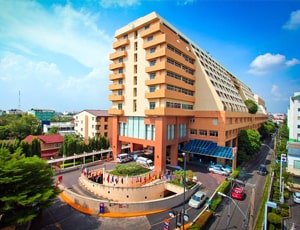
Types of Craniotomy in Vejthani Hospital and its associated cost
| Treatment Option | Approximate Cost Range (USD) | Approximate Cost Range (THB) |
|---|---|---|
| Overall Craniotomy Surgery | 12519 - 22082 | 444632 - 785198 |
| Extended Bifrontal Craniotomy | 9777 - 25243 | 349335 - 894751 |
| Supra-Orbital Craniotomy | 10340 - 22330 | 379840 - 811689 |
| Retro Sigmoid Craniotomy | 12205 - 24929 | 443367 - 893419 |
| Orbitozygomatic Craniotomy | 12387 - 24295 | 443263 - 892229 |
| Translabyrinthine Craniotomy | 12140 - 23598 | 433061 - 838809 |
| Pterional Craniotomy | 10954 - 22696 | 390499 - 796185 |
| Suboccipital Craniotomy | 11026 - 21049 | 404888 - 758466 |
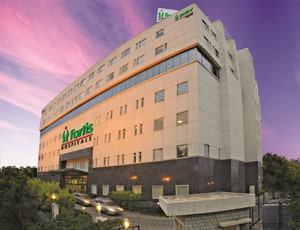
Types of Craniotomy in Fortis Hospital and its associated cost
| Treatment Option | Approximate Cost Range (USD) | Approximate Cost Range (INR) |
|---|---|---|
| Overall Craniotomy Surgery | 5081 - 10171 | 415726 - 836000 |
| Extended Bifrontal Craniotomy | 3052 - 8160 | 249323 - 664480 |
| Supra-Orbital Craniotomy | 3551 - 7648 | 291775 - 623075 |
| Retro Sigmoid Craniotomy | 4571 - 9142 | 375441 - 750082 |
| Orbitozygomatic Craniotomy | 4565 - 9605 | 375756 - 789783 |
| Translabyrinthine Craniotomy | 4583 - 9666 | 375858 - 790835 |
| Pterional Craniotomy | 4075 - 8620 | 332618 - 706542 |
| Suboccipital Craniotomy | 4066 - 8658 | 334240 - 704040 |
DOCTORS IN 12 SPECIALITIES
FACILITIES & AMENITIES
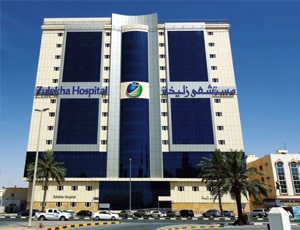
Types of Craniotomy in Zulekha Hospital Sharjah and its associated cost
| Treatment Option | Approximate Cost Range (USD) | Approximate Cost Range (AED) |
|---|---|---|
| Overall Craniotomy Surgery | 15091 - 28645 | 56626 - 102381 |
| Extended Bifrontal Craniotomy | 11093 - 27286 | 39272 - 101823 |
| Supra-Orbital Craniotomy | 11828 - 24608 | 42422 - 89575 |
| Retro Sigmoid Craniotomy | 13546 - 27010 | 48994 - 97772 |
| Orbitozygomatic Craniotomy | 13439 - 26931 | 50769 - 98755 |
| Translabyrinthine Craniotomy | 13784 - 28077 | 50166 - 103627 |
| Pterional Craniotomy | 12280 - 26860 | 45411 - 97895 |
| Suboccipital Craniotomy | 12546 - 25020 | 44467 - 91563 |
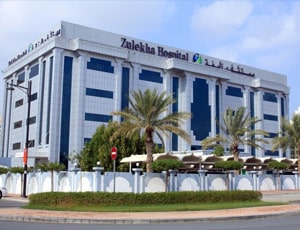
Types of Craniotomy in Zulekha Hospital Dubai and its associated cost
| Treatment Option | Approximate Cost Range (USD) | Approximate Cost Range (AED) |
|---|---|---|
| Overall Craniotomy Surgery | 15425 - 28706 | 56346 - 102603 |
| Extended Bifrontal Craniotomy | 10721 - 27813 | 39598 - 98383 |
| Supra-Orbital Craniotomy | 11542 - 24304 | 41750 - 91089 |
| Retro Sigmoid Craniotomy | 13721 - 27308 | 50486 - 101049 |
| Orbitozygomatic Craniotomy | 13459 - 27790 | 50799 - 98613 |
| Translabyrinthine Craniotomy | 13381 - 28610 | 49841 - 105383 |
| Pterional Craniotomy | 12423 - 26342 | 44412 - 100853 |
| Suboccipital Craniotomy | 12471 - 25001 | 45638 - 95171 |
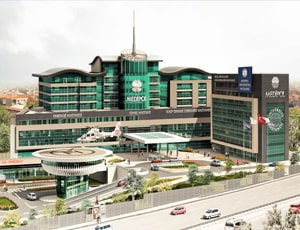
Types of Craniotomy in Medipol Mega University Hospital and its associated cost
| Treatment Option | Approximate Cost Range (USD) | Approximate Cost Range (TRY) |
|---|---|---|
| Overall Craniotomy Surgery | 14880 - 18800 | 444743 - 576507 |
| Extended Bifrontal Craniotomy | 9016 - 19459 | 276484 - 567098 |
| Supra-Orbital Craniotomy | 9437 - 16652 | 288885 - 518413 |
| Retro Sigmoid Craniotomy | 11277 - 19098 | 342493 - 586204 |
| Orbitozygomatic Craniotomy | 11120 - 18511 | 345666 - 568457 |
| Translabyrinthine Craniotomy | 11199 - 18000 | 343764 - 536589 |
| Pterional Craniotomy | 10069 - 16851 | 304753 - 518804 |
| Suboccipital Craniotomy | 10137 - 15761 | 299728 - 479347 |
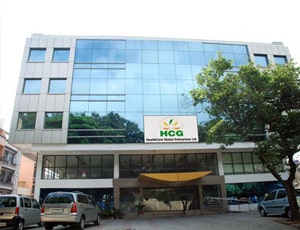
Types of Craniotomy in HCG Kalinga Rao Road and its associated cost
| Treatment Option | Approximate Cost Range (USD) | Approximate Cost Range (INR) |
|---|---|---|
| Overall Craniotomy Surgery | 5063 - 10177 | 414941 - 832322 |
| Extended Bifrontal Craniotomy | 3054 - 8142 | 250334 - 664428 |
| Supra-Orbital Craniotomy | 3541 - 7625 | 292149 - 625311 |
| Retro Sigmoid Craniotomy | 4576 - 9121 | 375111 - 751402 |
| Orbitozygomatic Craniotomy | 4556 - 9687 | 374373 - 794277 |
| Translabyrinthine Craniotomy | 4548 - 9602 | 376207 - 792385 |
| Pterional Craniotomy | 4074 - 8667 | 334165 - 704293 |
| Suboccipital Craniotomy | 4044 - 8621 | 331728 - 704676 |

Types of Craniotomy in Sarvodaya Hospital and Research Centre and its associated cost
| Treatment Option | Approximate Cost Range (USD) | Approximate Cost Range (INR) |
|---|---|---|
| Overall Craniotomy Surgery | 5081 - 10138 | 416685 - 834850 |
| Extended Bifrontal Craniotomy | 3049 - 8133 | 249405 - 667436 |
| Supra-Orbital Craniotomy | 3564 - 7620 | 290516 - 623243 |
| Retro Sigmoid Craniotomy | 4561 - 9102 | 375594 - 750921 |
| Orbitozygomatic Craniotomy | 4567 - 9680 | 375393 - 792095 |
| Translabyrinthine Craniotomy | 4570 - 9639 | 374279 - 790088 |
| Pterional Craniotomy | 4070 - 8601 | 334168 - 707033 |
| Suboccipital Craniotomy | 4043 - 8643 | 333836 - 706407 |
DOCTORS IN 14 SPECIALITIES
FACILITIES & AMENITIES
Craniotomy surgery is one of the most common types of brain surgery conducted to treat a brain tumor. It mainly aims at removing a lesion, tumor, or a blood clot in the brain by opening a flap above the brain to access the targeted area. This flap is removed on a temporary basis and again put in place when the surgery is done. Around 90 percent of the cases of brain tumors are diagnosed in adults aged between 55 and 65. Among children, a brain tumor is diagnosed within an age range of 3 to 12 years.
Craniotomy procedures are conducted with the help of magnetic resonance imaging (MRI) scans to reach the location precisely in the brain that requires treatment. A three-dimensional image for the same is achieved of the brain in conjunction with localizing frames and computers to view a tumor properly. A clear distinction is made between abnormal or tumor tissue and normal healthy tissue and to access the exact location of the abnormal tissue.
In a minimally invasive craniotomy procedure, a burr hole or a keyhole may be created to access the brain to fulfill the following purposes:
When there are complex craniotomies involved, the procedure may be referred to as a skull base surgery. In this kind of surgery, a small portion of the skull is removed from the bottom of the brain. This is the region where delicate arteries, veins, and cranial nerves exit the skull. Complicated planning is done to plan such craniotomies and understand the location of the lesions. This type of approach is usually employed for:
Primary brain tumors are much less common than secondary brain tumors. Primary ones are found to originate very close to the brain itself or in the tissues very close to it, such as the covering membranes of the brain, including the meninges, cranial nerves, pineal, or pituitary gland. It begins with normal cells, which at a later period undergoes some mutational errors in their DNA. The mutation triggers cells to grow and divide at a very high rate while healthy cells keep dying around it. This results in a mass of abnormal cells which gives rise to a tumor. Unlike primary tumors, the secondary tumors begin as cancer elsewhere and spread to the brain.
No matter what the goal of the surgery is, it is best to ensure that the incision is made to address the intracranial lesion keeping some principles in mind. A wide variety of intracranial processes can be done via a craniotomy with a different variety of incisions. Some of these variations include frontal craniotomy, pterional craniotomy, temporal craniotomy, decompression craniectomy, and suboccipital craniotomy.
Ask your healthcare adviser for the best multiple options and choose the one that meets your expectations
Craniotomy cost in Spain starts from about $31000. Craniotomy in Spain is available across many hospitals in different states.
Craniotomy package cost in Spain has different inclusions and exclusions. There are many hospital that cover the cost of pre-surgical investigations of the patient in the treatment package. The Craniotomy cost in Spain includes the cost of anesthesia, medicines, hospitalization and the surgeon's fee. Extended hospital stay, complications after the surgery or new diagnosis may affect the overall cost of Craniotomy in Spain.
There are many hospitals that perform Craniotomy in Spain. The following are some of the most renowned hospitals for Craniotomy in Spain:
After discharge from the hospital, the patient has to stay for another 28 days in the country for complete recovery. This time frame is important to ensure that the surgery was successful and the patient is fit to fly back.
There are certain additional cost that the patient has to pay apart from the Craniotomy cost. The extra charges may start from USD 50 per person.
Some of the cpopular cities in Spain that offer Craniotomy include the following:
There are several doctors who are available for telemedicine consultation for patients requiring Craniotomy in Spain. The following are some of the best doctors for Craniotomy in Spain who are available for video consultation:
| Doctor | Cost | Schedule Your Appointment |
|---|---|---|
| Dr. Antonio Russi | USD 833 | Schedule Now |
| Dr. Oliver Abadal Bartolome | USD 833 | Schedule Now |
| Dr. Enric Caceres | USD 606 | Schedule Now |
| Dr. Pablo Clavel Laria | USD 500 | Schedule Now |
After the Craniotomy takes place, the average duration of stay at the hospital is about 5 days. The patient is subjected to several biochemistry and radiological scans to see that everything is okay and the recovery is on track. After making sure that patient is clinically stable, discharge is planned.
There are more than 6 hospitals that offer Craniotomy in Spain. These clinics have proper infrastructure for the treatment of patients who require kidney transplant. Such hospitals follow all legal protocols and guidelines as specified by the local medical affairs body when it comes to the treatment of international patients.